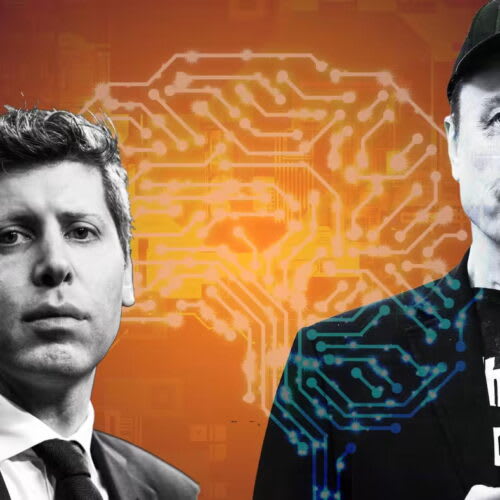Sam Altman's Ambitious Quest: Bridging Minds with Technology
 The Tech Times
The Tech Times
In a groundbreaking move, Sam Altman, co-founder of OpenAI, is setting out to challenge Neuralink, Elon Musk's ambitious venture into brain-computer interfacing, with his own innovative startup. Altman's new endeavor aims to develop "high-bandwidth brain-computer interfaces," a phrase that hints at a future where the fusion of human minds and technology could reach unprecedented levels of synergy. This initiative not only marks a new chapter in Altman's illustrious career but also signals a burgeoning field of technological development that could redefine human-machine interaction.
The Evolution of Brain-Computer Interfaces
The concept of brain-computer interfaces (BCIs) isn't new. For decades, scientists and technologists have been exploring ways to bridge the gap between the human brain and digital systems. The idea is simple yet profound: to enable direct communication between the brain and external devices, effectively allowing thoughts to control machines.
Historically, the journey began with rudimentary systems that could interpret basic neural signals to assist individuals with disabilities. Over the years, advances in neuroscience and computer science have propelled the field forward, paving the way for more sophisticated applications. The allure of BCIs lies in their potential to transform fields such as medicine, communication, and even entertainment, offering new possibilities for enhancing human capabilities.
Altman vs. Musk: A New Tech Rivalry
Sam Altman's foray into the realm of BCIs positions him as a direct competitor to Elon Musk, whose company Neuralink has been at the forefront of this technology. Neuralink's mission has been to develop implantable brain-machine interfaces that enable everything from restoring mobility in paralyzed individuals to potentially enhancing cognitive functions in healthy users.
However, Altman's vision for high-bandwidth BCIs suggests a leap beyond current capabilities. While specific details of Altman's startup remain under wraps, the promise of higher bandwidth implies a more seamless, efficient, and expansive exchange of information between the brain and computers. This could lead to more intuitive control of devices, quicker data processing, and a broader range of applications.
The Implications of High-Bandwidth BCIs
The development of high-bandwidth BCIs could revolutionize how we interact with technology. Imagine a world where typing on a keyboard is replaced by thinking your messages, or where virtual reality experiences are delivered directly to your brain. The implications extend into numerous areas:
- Medical Breakthroughs: BCIs could provide new treatment avenues for neurological conditions, offering hope to millions worldwide.
- Cognitive Enhancement: Beyond therapeutic applications, BCIs could enhance memory, focus, and other cognitive functions, potentially leveling the intellectual playing field.
- Privacy Concerns: As with any technology interfacing with the human brain, ethical considerations around privacy, security, and consent become paramount.
- Economic Impact: The BCI industry could spur new economic opportunities, driving innovation and creating jobs in technology, healthcare, and beyond.
A Future Bridged by Technology
Sam Altman's announcement is more than just a business maneuver—it's a statement about the future direction of human-computer interaction. As we stand on the brink of this new technological frontier, the potential for BCIs to transform society is enormous. Nevertheless, the journey will require navigating complex ethical landscapes and ensuring that the benefits of these advancements are accessible and equitable.
By challenging established players like Neuralink, Altman is not only fostering competition but also accelerating the pace of innovation. Whether his startup can deliver on the promise of high-bandwidth brain-computer interfaces remains to be seen, but one thing is clear: the race to bridge our minds with technology is just heating up.
Source: OpenAI, cofounder Sam Altman to take on Neuralink with new startup
Subscribe to my newsletter
Read articles from The Tech Times directly inside your inbox. Subscribe to the newsletter, and don't miss out.
Written by
